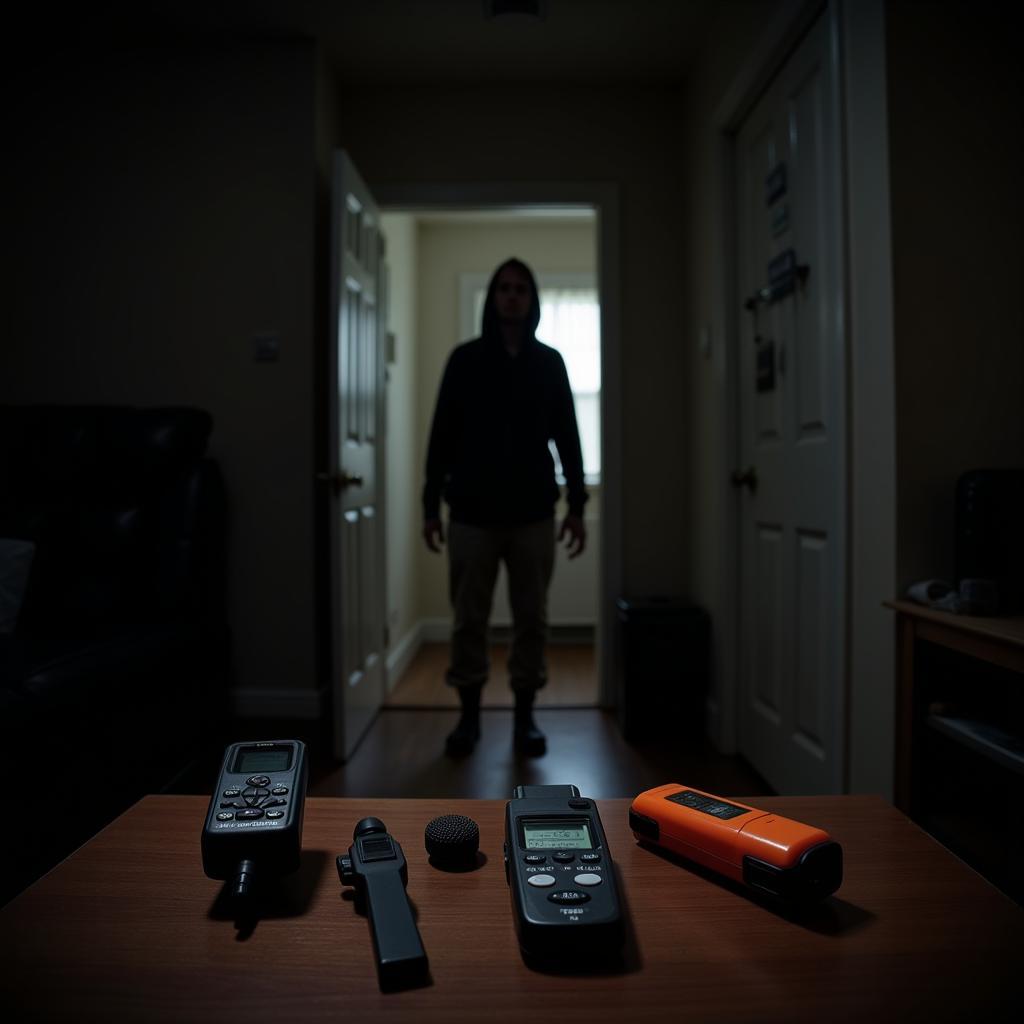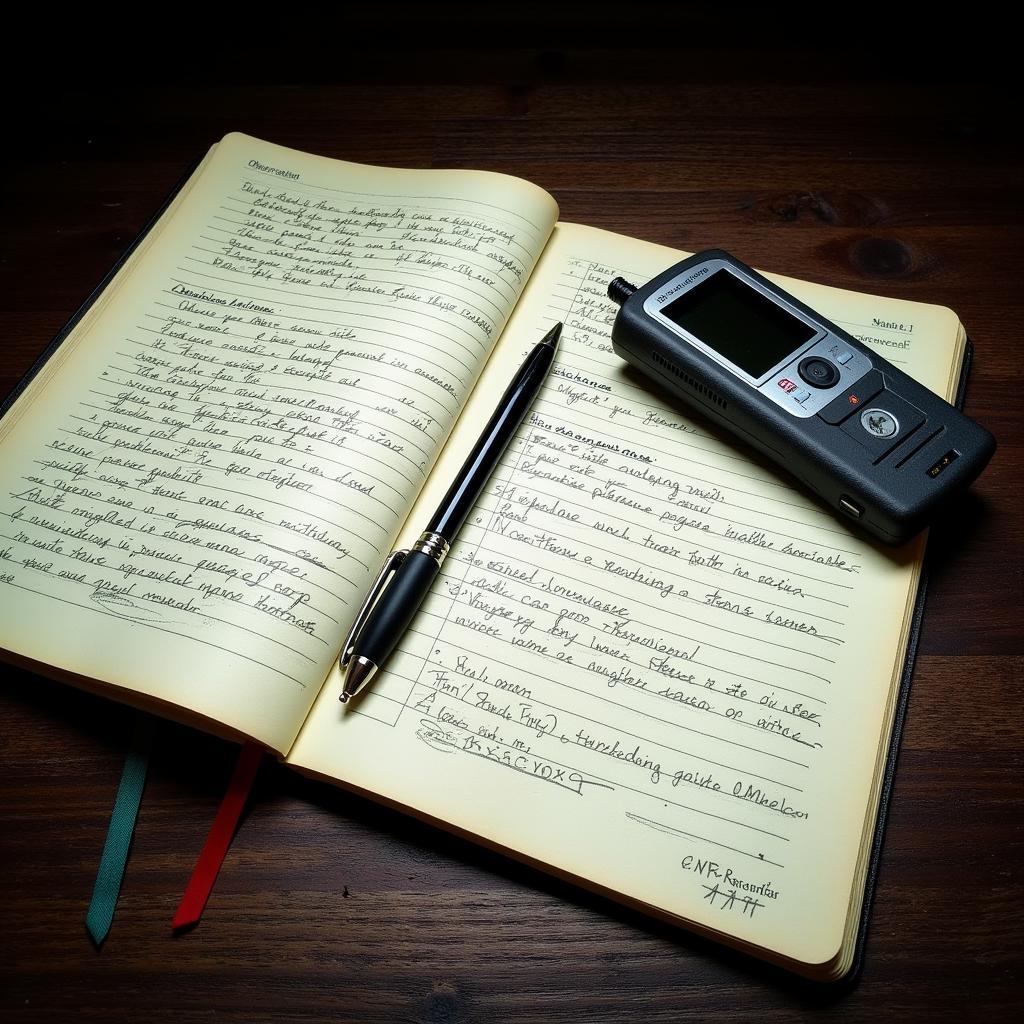Empirical research, with its emphasis on observation and data collection, often seems at odds with the elusive nature of the paranormal. How can we apply scientific rigor to phenomena that defy conventional understanding? While the chasm between scientific methodology and the world of the unexplained may appear vast, empirical research offers valuable tools for paranormal investigators seeking concrete evidence.
Bridging the Gap: Empirical Research and the Paranormal
 Empirical Research in Paranormal Investigation
Empirical Research in Paranormal Investigation
Empirical research, at its core, relies on gathering data through observation and experimentation. This data-driven approach, often associated with fields like physics or biology, can be adapted to explore paranormal claims. While we can’t capture a ghost in a test tube, we can employ empirical methodologies to analyze and interpret the evidence they leave behind.
Types of Empirical Research in Paranormal Investigation
Several types of empirical research lend themselves to paranormal investigation:
- Quantitative Research: This approach focuses on quantifiable data, often using statistical analysis to identify patterns and trends. For instance, researchers might analyze EMF readings taken at allegedly haunted locations over time to detect anomalies.
- Qualitative Research: This approach delves into subjective experiences and observations, seeking to understand the meaning and context of paranormal encounters. Researchers might conduct interviews with individuals who claim to have had paranormal experiences, analyzing their narratives for common themes.
- Experimental Research: This approach involves manipulating variables in a controlled environment to test specific hypotheses. For example, investigators might attempt to recreate reported phenomena, such as spirit communication through EVP recordings, under controlled conditions.
Examples of Empirical Research in Paranormal Investigation
 Documenting Evidence in a Paranormal Investigation
Documenting Evidence in a Paranormal Investigation
Let’s explore some compelling examples of how empirical research has been applied in paranormal investigation:
- The Phillip Experiment (1972): A group of Canadian researchers, led by Dr. George Owen, attempted to create a “ghost” through a series of séances. Remarkably, the group reported contact with “Phillip,” an entity who provided verifiable historical information. While the experiment’s results remain controversial, it exemplifies the application of experimental research methods to paranormal claims.
- The Ganzfeld Experiment: This experimental setup involves sensory deprivation, using techniques like white noise and ping-pong balls over the eyes, to reduce external stimuli. Proponents believe this heightened state of awareness may facilitate psychic abilities. While results have been mixed, the Ganzfeld experiment demonstrates the use of controlled environments in paranormal research.
- EVP Analysis: Electronic Voice Phenomena (EVP) recordings, often captured using audio recorders in allegedly haunted locations, are analyzed for voices or sounds not audible at the time of recording. While skeptics often attribute EVPs to pareidolia (finding patterns in randomness) or environmental noise, researchers utilize audio analysis software to filter out extraneous sounds and examine potential anomalies.
Challenges and Considerations in Paranormal Research
 Overcoming Obstacles in Paranormal Research
Overcoming Obstacles in Paranormal Research
Paranormal research faces unique challenges that can make empirical investigation difficult:
- Reproducibility: Paranormal phenomena often prove difficult to replicate in controlled settings, making it challenging to establish consistent patterns and rule out external factors.
- Subjectivity: Experiences perceived as paranormal are often subjective and open to interpretation, making it difficult to establish objective measures.
- Ethical Considerations: Paranormal research often involves sensitive topics and potential vulnerabilities, requiring researchers to prioritize ethical guidelines and informed consent.
Conclusion: A Data-Driven Approach to the Unknown
While empirical research may not provide definitive answers to the mysteries of the paranormal, it offers a valuable framework for exploring these phenomena with a critical and objective lens. By embracing a data-driven approach, paranormal investigators can move beyond speculation and contribute to a deeper understanding of the unexplained. If you have any questions or need assistance with your own paranormal research, please don’t hesitate to contact us.
FAQs
-
Can science ever truly prove or disprove the paranormal? The nature of paranormal phenomena, often existing outside the realm of our current scientific understanding, makes definitive proof challenging. However, empirical research can help us gather evidence, analyze patterns, and develop more informed perspectives.
-
What are some common misconceptions about paranormal research? One common misconception is that paranormal investigators solely rely on subjective experiences. While personal accounts are valuable, empirical research emphasizes data collection, analysis, and the use of scientific methodologies.
-
How can I get involved in ethical and responsible Paranormal Research? Seek out reputable organizations and researchers who prioritize ethical practices, informed consent, and data integrity. Start by educating yourself about research methodologies and responsible investigation techniques.
Do you need help with Paranormal Research?
If you are interested in learning more about empirical research in paranormal investigation, you can read our other articles on this topic:
We are always here to help you explore the unexplained. Please feel free to reach out to us with any questions or inquiries you may have.
Contact Information:
Phone Number: 0904826292
Email: research@gmail.com
Address: No. 31, Alley 142/7, P. Phú Viên, Bồ Đề, Long Biên, Hà Nội, Việt Nam.
Our team is available 24/7 to assist you.